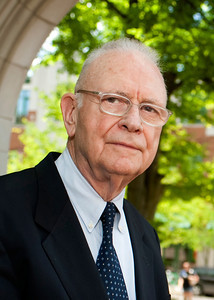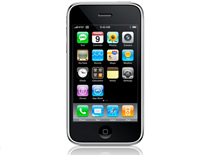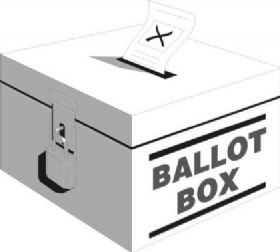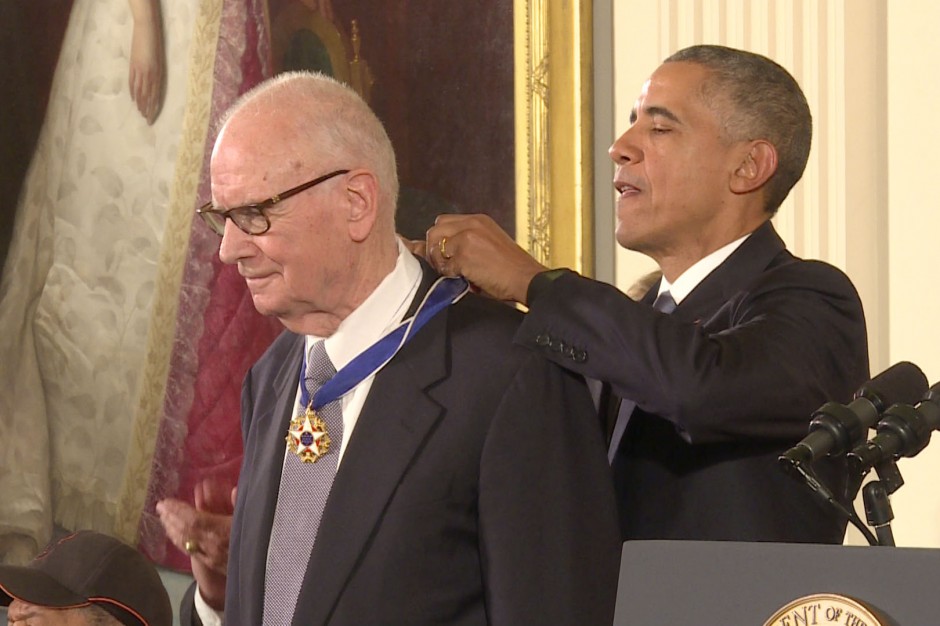Lee Hamilton '52 Examines Social Media's Challenge to Democracy
September 6, 2016

"The Internet and social media have upended our expectations of what it means to be well informed," states Lee H. Hamilton, the 1952 DePauw University graduate who was a member of the U.S. House of Representatives for 34 years. "Platforms and websites that take advantage of online and mobile connectivity are like a firehose, providing enormous quantities of information, opinion, news, statements, videos, images, analysis, charts, graphs -- all of it instantly available."
In a newspaper column, Hamilton adds, "Facebook, Twitter, Snapchat and other platforms have become the way many of our citizens communicate. They have become a force for mobilizing large groups of people to apply political pressure on short notice."
These "powerful tools" have upsides, the Democrat observes, allowing people to fact-check politicians, galvanize to demand change, and have brought "fresh voices" to the process.

"But if information has become more ubiquitous and powerful, so has misinformation," Hamilton says. "It spreads rapidly, passed along from user to user with no check. Posts tend to have no room for nuance; arguments can be explosive and arguers aggressive; drama and hysteria fuel polarization; special interests can’t help but take advantage of the context-free nature of social media."
He asks, "Does the ubiquity of information available through social media really help citizens understand complex issues, weigh competing arguments and reach discriminating judgments about politics? Or does it overwhelm them with bursts of information that are so mixed as to quality that people simply throw up their hands -- or, worse, charge full-tilt ahead based on a false understanding of reality? The answer, of course, is that it’s a mixed bag. The jury’s still out on whether we’re becoming better citizens because we have more information and opinion at our fingertips."
 The column concludes, "Certainly, the information world we live in today is putting more stress on individual voters to make discriminating choices and on our representative democracy, which rests on institutions that were designed in the 18th and 19th centuries. Our political process has proved resilient over centuries and has served us well. But social media pose a powerful challenge. They’ve brought great gifts and equally great risks, and we’d be prudent to be cautious."
The column concludes, "Certainly, the information world we live in today is putting more stress on individual voters to make discriminating choices and on our representative democracy, which rests on institutions that were designed in the 18th and 19th centuries. Our political process has proved resilient over centuries and has served us well. But social media pose a powerful challenge. They’ve brought great gifts and equally great risks, and we’d be prudent to be cautious."
You'll find the complete essay at the website of Nebraska's Omaha World-Herald.
A history major and basketball standout at DePauw, Hamilton received the Presidential Medal of Freedom from President Obama last year.
He was one of five individuals inducted last summer into the Capital One Academic All-America® Hall of Fame, as selected by the College Sports Information Directors of America (CoSIDA), and has also received  the Churchill Award for Statesmanship, the Eisenhower Medal for exceptional leadership, the Distinguished Service Award from the U.S. Association of Former Members of Congress, and the Franklin and Eleanor Roosevelt Institute Freedom From Fear Award, among many other honors. He's also a member of the Indiana Basketball Hall of Fame and DePauw's Athletic Hall of Fame.
the Churchill Award for Statesmanship, the Eisenhower Medal for exceptional leadership, the Distinguished Service Award from the U.S. Association of Former Members of Congress, and the Franklin and Eleanor Roosevelt Institute Freedom From Fear Award, among many other honors. He's also a member of the Indiana Basketball Hall of Fame and DePauw's Athletic Hall of Fame.
Congressman Hamilton has been a frequent visitor to DePauw over the years and was on campus March 3 to discuss the issues facing American and the world. He delivered an Ubben Lecture on March 15, 2011 as well as his alma mater's commencement addresses in 1971 and 1998.
Source: Omaha (Neb.) World-Herald
Back